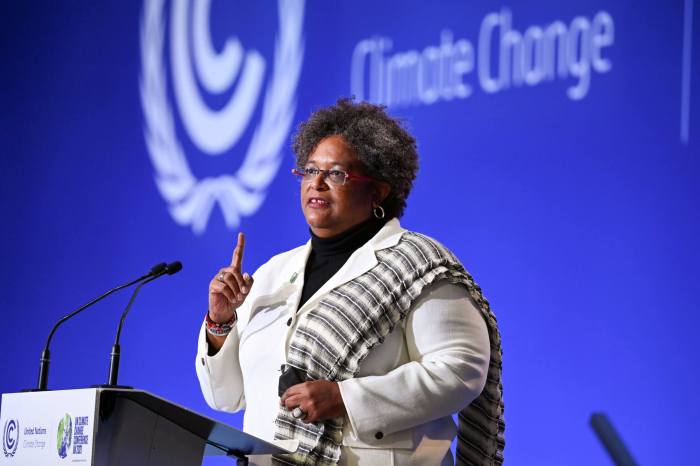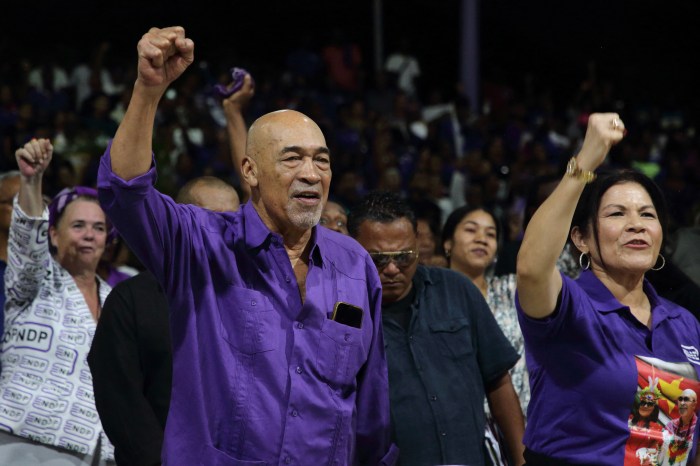Barbados
The Barbados government has announced that independent producers interested in supplying electricity to the national network will be able to apply for licenses by early next year.
Energy Minister Darcy Boyce said that recommendations on licensing systems for these producers should he in hand by the end of the year and that proposals for pricing of renewable energy would also go before the Fair Trading Commission early next year.
He said that recommendations on pricing will be made after stakeholder consultations.
Boyce, made the disclosure while speaking at a signing ceremony between the Division of Energy and Enermak Limited to facilitate the installation of solar photovoltaic systems at 28 community centers and nine polyclinics.
The project, which will be implemented over the next three months forms part of the Disaster Risk and Energy Access Management Project funded by the Global Environment Facility with support from the United Nations Development Program (UNDP).
He said its primary objectives are to reduce greenhouse gas emissions through the use of renewable energy and to strengthening Barbados’ disaster risk response by promoting decentralized photovoltaic electricity generation with battery back-up.
Grenada
The Grenada government wants to set up a sex offender registry in light of a recent killing of nine-year-old Arilea Bhola of Grand Anse, St .George.
Minister of Health, Nicholas Steele has announced that the Dr. Keith Mitchell administration is moving to towards the establishment of a sex registry to help combat sexual abuse in Grenada.
He said that the government has concluded that the move could be a positive step in helping to curb the issue of sex crimes and in particular child sexual in the society.
He said the government has heard calls from the public for action to be taken on the growing sexual abuse problem in the country and was giving support for the sexual offender registry.
The government was responding to massive public outrage over the rape and murder of Bhola by a 17-year-old boy.
Jamaica
The Jamaica government has signed a multi-million contract with China Harbor Engineering Company (CHEC) to undertake a major improvement project on Constant Spring Road, St. Andrews, which is expected to start early in the new year.
Constant Spring Road is the main north-south corridor in the Corporate Area, but has been deteriorating in recent times leading to traffic jams and delays.
Speaking at the signing ceremony recently, Prime Minister Andrew Holness said the project will cost US$19 million.
He noted that the project is important to improve mobility within the city and to improve connectivity with other parishes.
In addition to the road improvement, some 14 intersections will be improved and new traffic-control mechanisms will also be installed along the corridor.
China’s Ambassador to Jamaica, Niu Quigbao, endorsed the project, saying that the agreement represents a deepening of the partnership between China and Jamaica.
St. Lucia
The St. Lucia government will invest US$5 million into the Organization of Eastern Caribbean States OECS) Competitive Tourism Project.
This was announced by Tourism Minister Dominic Fedee who said that the Allen Chastanet government had agreed to invest US$15 million for the project, whose objective is to facilitate access and movement of traveler through a pilot ferry service, rehabilitate select tourism sites such as Fort George in Grenada, Fort Charlotte in St. Vincent and the Grenadines and Castries in St. Lucia.
The World Bank earlier this year announced it had approved US$26 million for the project.
It will help position these countries as one multi-island travel destination.
The tourism minister said that a recent Florida Caribbean Cruise Association (FCCA) meeting, one cruise line suggested that while 95 percent of is passengers who de-board spend only 20 percent of their time on shore.
Feede said the St. Lucia Tourist Board was playing its part in marketing the destination, which has resulted in a 10 percent increase in tourist arrivals.
The Caribbean Tourism Organization (CTO) has suggested that St. Lucia is the second fastest growing tourist destination as of September.
St. Vincent
St. Vincent and the Grenadines Tourism Minister Cecil “Ces” McKie has said that the financially-troubled Buccament Bay Resort could open as early next year.
The resort, which began operating in 2011, closed its doors in December 2016 after its electricity was disconnected.
The state-owned power company severed the resort’s connection over the lack of payment amidst weeks of protest by workers over the non-payment of wages and complaints by guests about the declining quality of service.
Mackie recently told legislators that when the resort was operational, it had 80 percent occupancy right up to closure, the loss of which has impacted negatively on the tourism sector, particularly from the United Kingdom.
St. Kitts
A Barbados-based Caribbean Development Bank (CDB) delegation recently visited St. Kitts and Nevis to discuss key areas of national development priorities and to determine the areas of intervention that the CDB could support over the period 2017-2021.
CDB director of economic, Dr. Justin Ram said in a statement said, “given the priorities that have been identified during the visit, the CDB is likely to support St. Kitts and Nevis in key areas of national development that are critical for economic growth and social development.”
The CDB said the team held talks with officials from the public and private sector and the discussions also focused on the country’s key development challenges and the role and work of other development partners who provide support to the Federation.
Trinidad
Trinidad and Tobago Prime Minister Dr. Keith Rowley said that more and more people will die as a result of the Opposition United National Congress (UNC) refusal to support the anti-gang bill in Parliament last week.
After a 14-hour marathon debate on the Anti-Gang legislation the Opposition voted against the bill, which angered Rowley who said he was surprised that the government did not get the support to pass the bill.
Trinidad and Tobago was still without a law to deal with the country’s 211 gangs and 2,459 gang members.
The bill was meant to maintain public safety and order through discouraging membership in criminal gangs and suppression of criminal gang activity.
Despite amendments to government and opposition proposals, both were locked on a “sunset clause” period by which time the bill would end and be reviewed.
Government wanted five years, but the opposition proposed l8 months.
But there were also some draconian measures which the Opposition wanted to remove from the bill.
The prime minister accused Opposition leader Kamla Persad-Bissessar and her gang of voting to maintain the status quo, where those who are recruiting children in schools are arming them with guns, taking them from their mother’s breast and putting them on the streets to kill innocent citizens.
— Compiled by Azad Ali






















